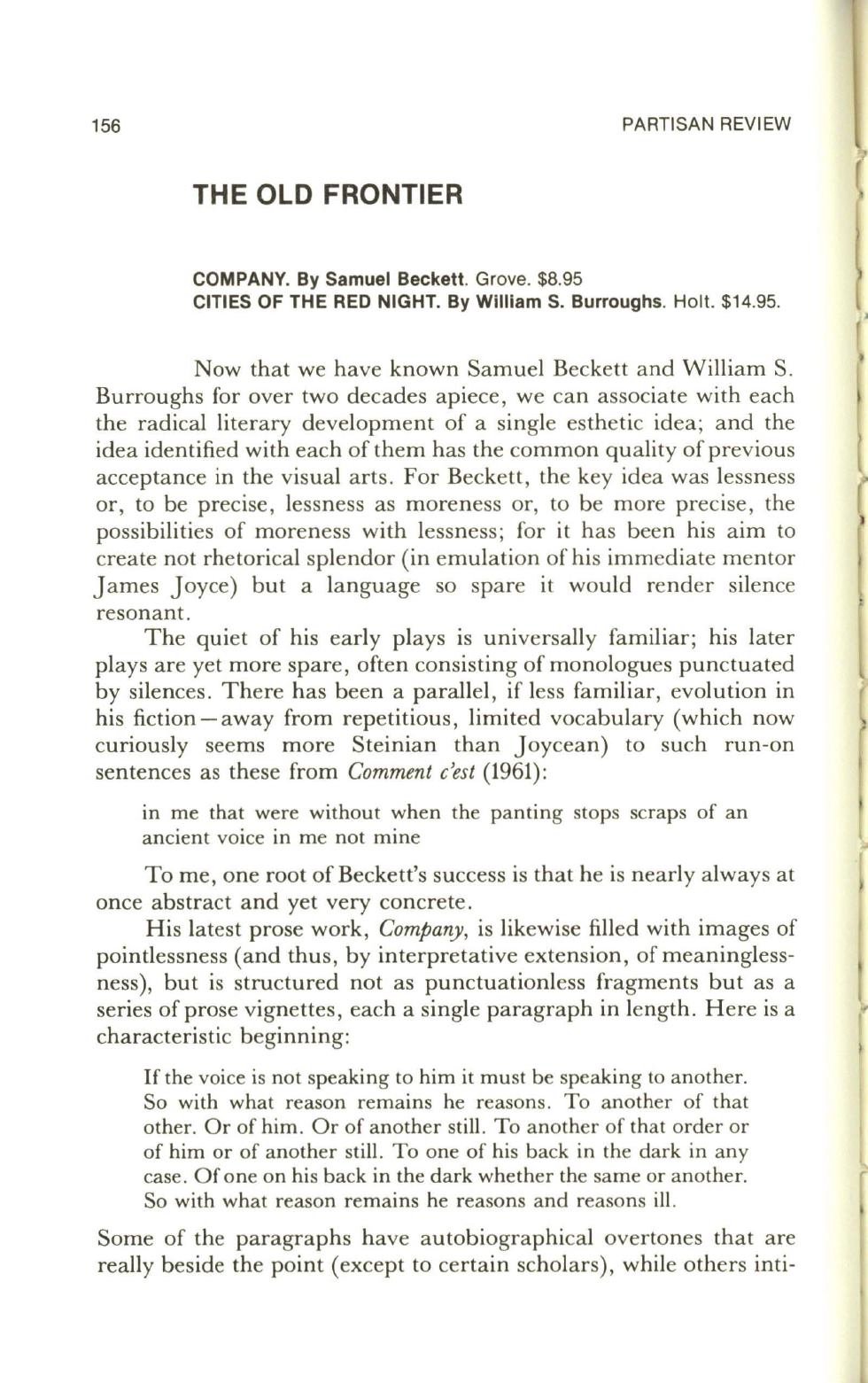
156
PARTISAN REVIEW
THE OLD FRONTIER
COMPANY. By Samuel Beckett.
Grove. $8.95
CITIES OF THE RED NIGHT. By William S. Burroughs.
Holt. $14.95.
Now that we have known Samuel Beckett and William S.
Burroughs for over two decades apiece, we can associate with each
the radical literary development of a single esthetic idea; and the
idea identified with each of them has the common quality of previous
acceptance in the visual arts. For Beckett, the key idea was lessness
or, to be precise, lessness as moreness or, to be more precise , the
possibilities of moreness with lessness; for it has been his aim to
create not rhetorical splendor (in emulation of his immediate mentor
James Joyce) but a language so spare it would render silence
resonant.
The quiet of his early plays is universally familiar; his later
plays are yet more spare, often consisting of monologues punctuated
by silences . There has been a parallel , if less familiar, evolution in
his fiction-away from repetitious, limited vocabulary (which now
curiously seems more Steinian than Joycean) to such run-on
sentences as these from
Comment c'est (1961):
in me that were without when the panting stops scraps of an
ancient voice in me not mine
To me, one root of Beckett's success is that he is nearly always at
once abstract and yet very concrete.
His latest prose work,
Company,
is likewise filled with images of
pointlessness (and thus, by interpretative extension, of meaningless–
ness), but is structured not as punctuationless fragments but as a
series of prose vignettes, each a single paragraph in length. Here is a
characteristic beginning:
If
the voice is not speaking to him it must be speaking to another.
So with what reason remains he reasons . To another of that
other. Or of him. Or of another still. To another of that order or
of him or of another still . To one of his back in the dark in any
case. Of one on his back in the dark whether the same or another.
So with what reason remains he reasons and reasons ill.
Some of the paragraphs have autobiographical overtones that are
really beside the point (except to certain scholars), while others inti-


